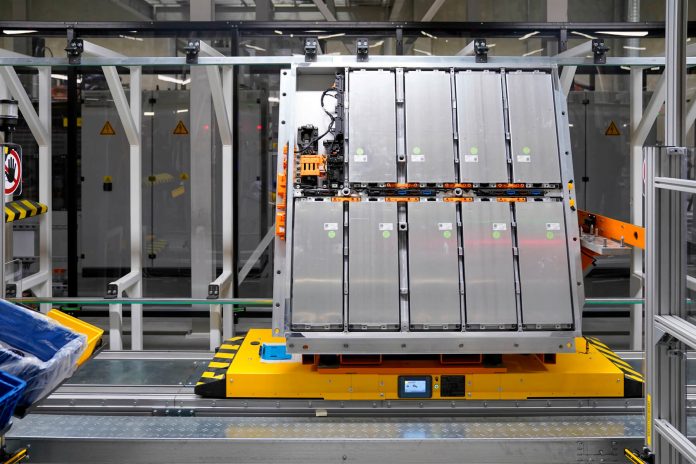The U.S. lawmakers is reportedly attempting to further drive the “decoupling” of the Pentagon’s supply chain from China. According to sources cited by Bloomberg, the U.S. Congress has prohibited the Pentagon from procuring batteries produced by six Chinese companies, including CATL and BYD.
Additionally, the other four battery manufacturers set to be banned are Envision Energy, EVE Energy, Gotion High-Tech, and Hithium Energy Storage Technology. Based on the report, of the top 10 battery suppliers in the world, just three are non-Chinese companies.
It is noted that this regulation is part of the “2024 National Defense Authorization Act,” passed on December 22, 2023. However, commercial purchases, such as Ford’s procurement of batteries from CATL in Michigan and Tesla’s sourcing of batteries from BYD, are temporarily exempt from these measures.
As per IJIWEI’s report, the U.S. government has long been eyeing the Chinese new energy vehicle supply chain. Previously, U.S. Treasury Secretary Janet Yellen argued that China’s new energy vehicle industry posed a threat to the “national security” of the United States.
At the end of 2023, a document was signed, stipulating that from 2024 onwards, all electric vehicles produced in the U.S. are prohibited from using Chinese batteries. The signing of this document is evidently unfavorable for companies in the electric vehicle battery industry looking to expand into the U.S. market.
According to the conditions for electric vehicle subsidies under the U.S. IRA Act, starting in 2024, the use of battery components produced by entities from “Foreign Entity of Concern” (FEOC) countries is prohibited. In 2025, the prohibition extends to the use of key minerals processed or recycled in FEOC countries. FEOC encompasses China, North Korea, Russia, and Iran.
The U.S. Department of Energy, in December 2023, released a notification of a proposed interpretive rule, requesting comments to define FEOC, covering overseas subsidiaries of Chinese companies and overseas enterprises with more than 25% ownership by Chinese state-owned enterprises.
However, given the current distribution of the battery supply chain, completely bypassing the Chinese battery supply chain in the U.S. is challenging. Even if feasible, it would come with substantial costs. The result could be a short-term inability to reduce vehicle prices, further impacting the gradually weakening demand for electric vehicles in the United States.
TrendForce indicates that the combined sales of BEVs and PHEVs in the United States totaled approximately 1.46 million vehicles in 2023. Due to the requirement that many vehicles must meet local assembly criteria in the U.S. to qualify for subsidies, numerous models lost subsidies in 2023.
It is expected that in 2024, various automakers will increase the proportion of local assembly, expanding consumer options to stimulate demand. However, stringent conditions for battery adoption could become one of the variables affecting the growth of electric vehicle sales in the United States.

